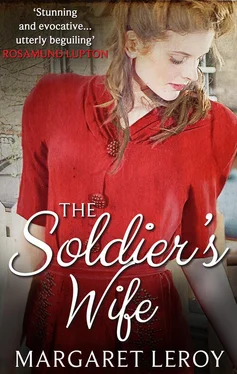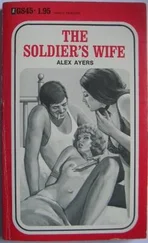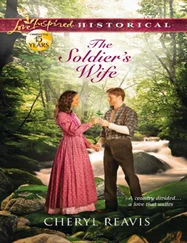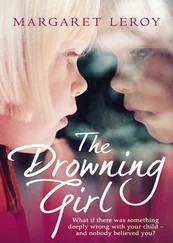‘Bless her tender heart. Of course she would be,’ says Angie. ‘Of course we’ll take poor Alphonse in. He’ll be company for Evelyn, with all of her family gone.’
‘Thank you so much. You’re a saint, Angie. Well, I’d better be off …’
I go to kiss Evelyn.
‘You look after yourself,’ I say.
‘And you, Vivienne,’ she says, rather formally. She’s sitting there so stiffly, as if she has to concentrate or she might fall apart. ‘Give my love to the girls.’ As though she didn’t say goodbye to them just before we left. As though she hasn’t seen them for weeks.
I pat her hand, and thank Angie again, and hurry back down the hill. I can’t help thinking about what she said, about what the Germans could do. I tell myself she’s wrong—that it’s just a salacious story. In the Great War we heard that the Germans were cutting the hands off babies, but it proved to be just a terrible rumour.
Yet the pictures are there in my mind and I can’t push them away.
The streets of St Peter Port are quiet. Some of the shops are boarded up, and there’s a lot of litter lying and shifting slightly in little eddies of air. The sky has clouded over, so it has a smudged, bleary look, like window-glass that needs cleaning. It’s a grey, dirty, rather disconsolate day.
Frank drops us at the harbour, wishing us luck.
We see at once why the streets were empty: all the people are here. There’s already a very long queue of silent, anxious islanders, snaking back from the pier and all along the Esplanade. We go to a desk set up on the pavement, where a flustered woman ticks off our names on a list. She has a pink, mottled face, and disordered hair that she keeps distractedly pushing out of her eyes.
We join the queue. People are sweating in woollen coats too cumbersome to pack up: they take out their handkerchiefs, wipe the damp from their skin. On this clammy summer day, the winter colours of the coats look sombre, almost funereal. Some people don’t have suitcases, and have tied up their belongings in neat brown-paper parcels. A bus arrives, and children spill down the steps; most of them have labels carefully pinned to their coats. They have a lost, dazed look in their eyes. Older children officiously clutch at younger brothers and sisters, responsibility weighing on them, clasping at a coat collar or the cuff of a sleeve.
Millie stares at the children. She frowns. She holds very tight to my hand.
Blanche is wearing her coral taffeta dress beneath her winter coat. She unbuttons her coat and runs her hand over her skirt, trying to smooth out the creases in the glossy fabric.
‘Oh, no , Mum,’ she says suddenly.
Her voice is full of drama; my heart pounds, hurting my chest.
‘What is it?’ I say sharply.
‘I think I’ve forgotten my Vaseline. My skin will get all chapped.’
I feel a little cross with her, that she frightened me like that.
‘It doesn’t matter,’ I say. ‘We’re all sure to have forgotten something.’
‘It does matter, Mum. It does .’
We stand there for what seems like a very long time. The queue is orderly, subdued: nobody talks very much. Seagulls scream in the empty air above us, and there are many boats at anchor; you can hear the nervous slap and jostle of water round their hulls. The sun comes briefly out from the cloud, throwing light at everything, then rapidly snatching it back; where the sun isn’t shining on it, the sea looks black and unspeakably cold. I can’t see the boat that will take us to Weymouth—it must be moored out of sight. The only vessel that’s moored to this part of the pier is quite a small boat, not much bigger than the fishermen use, tied up where stone steps lead down from the pier to the sea. I wonder vaguely who it belongs to.
More and more people come, with their coats, their suitcases, their bulging parcels of precious belongings: with the fear that seems to seep like sweat from their pores.
‘Will I have my own room at Auntie Iris’s?’ Blanche asks me.
‘No, sweetheart. It’ll be a crush. You’ll probably have to sleep in the back bedroom with the boys.’
‘Oh,’ she says, digesting this. It isn’t quite what she’d hoped for. ‘Well, I don’t mind. It might be quite fun, really, sharing a room.’
‘What does London look like?’ says Millie.
‘You’ll love it,’ says Blanche. She relishes being asked this—she loves being the expert on London. ‘The women have beautiful clothes, and the trains go under the ground, and there’s a park with pelicans …’
I understand Blanche’s yearning for London: sometimes I long for it too, even after all these years away, remembering the thrilling hum of the city, the people so different from island people, so much more vivid and purposeful, the yellow lamplight on smoky streets, the slow brown surge of the Thames. I remember too the sense of possibility—of a world that’s freer, wider, more open than this island. I share her excitement for a moment, allowing myself a spark of hope—that there could be good things about this, in spite of the war. A new freedom.
‘Can we go and see Buckingham Palace?’ says Millie.
She has a Buckingham Palace jigsaw that Evelyn gave her for Christmas.
‘I’m sure we will,’ I say.
To my relief, the queue begins to edge forward. Then I see that the people at the front are going down the steps from the pier and over a gangplank onto the boat. The small boat. It can’t be. They can’t expect us to go in that, all the way to England.
‘What is it, Mum?’ says Blanche, urgently. She’s heard my quick inbreath.
‘Nothing, sweetheart.’
She follows my gaze.
‘It isn’t a very big boat, Mum.’ A little uncertain.
‘No. But I’m sure it will be fine. I’m sure they know what they’re doing …’
She hears the apprehension in my voice. She gives me a questioning look.
The queue inches forward, silently.
In front of me is a solid middle-aged woman. Round her neck she wears a fox fur, which has a glass-bead eye, a predatory mouth, a lush russet tail hanging down. Millie is intrigued: she stares at the fox. A smell of mothballs hangs about the woman; she will have taken her best winter clothes out of storage. Next to her is her husband, who seems rather passive and cowed. You can tell she’s the one who makes the decisions.
‘Sorry to bother you,’ I say.
She turns and gives a slight smile, approving of my children.
‘It was just that I was wondering—is that the boat?’ I say.
‘Well—that’s what it looks like,’ she says.
She obviously takes trouble over her appearance; she has plucked her eyebrows out then pencilled them carefully in, and her face is heavily powdered. Her hat is fixed with a silver hatpin like a pansy flower.
‘We’ll never all get on that,’ I say. ‘They should have sent something bigger. Didn’t they realise how many of us there would be?’
The woman shrugs.
‘To be honest—excuse my language—but I don’t think they give a damn about us, in England,’ she says.
‘But—you’d think they’d have sent some soldiers. I mean, there’s no protection for us. We could meet anything on the journey …’
‘We’re expendable, let’s face it,’ says the woman. ‘They’ve given us up for lost. Well, I suppose Mr Churchill’s got an awful lot of things on his mind.’
She’s sardonic, resigned. I wish I could be like that—perhaps it’s a good way to be: not to expect very much, not to struggle against what is happening. But she doesn’t have children with her.
She pulls out the pansy hatpin and fans her face with her hat. Sweat has made thin runnels in the powder on her face. She turns back to her husband.
Читать дальше












